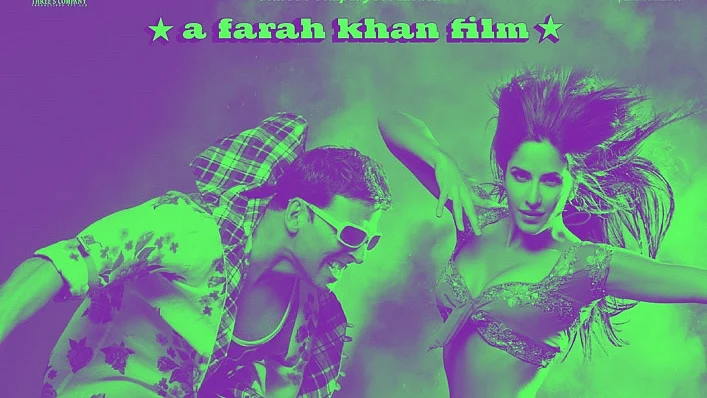“Every film has its audience,” sighed a film critic friend when I said I wanted to watch Tees Maar Khan the 16th time—and with him. We had been discussing—basically, me recalling the tiniest details from Farah Khan’s third directorial project and him listening to me, exasperated and somewhat concerned about my mental health—Tees Maar Khan’s many merits for more than a month before deciding to watch it together. “You are more in love with the film than Farah ever would have been."
And why should I not be? Tees Maar Khan is a film that preempted our life today more than a decade ago. And for that very reason, Farah Khan deserves accolades.
Air Travel In India And The Art Of Criminals Getting Away
When a wanted criminal, Tabrez aka Tees Maar Khan gets arrested abroad, Indian police, media, and the general public cannot have enough of the hype. After all, this is an extradition that India has actually accomplished successfully unlike in the case of other ‘wanted’ fugitives like Nirav Modi and Vijay Mallya.
But this success is short-lived as Tabrez hoodwinks the Indian security apparatus during their flight only to land in Mumbai to a hero’s welcome. Strange things happen on flights both in reel and real worlds. Truth, however, is stranger than fiction as Air India incidents have affirmed yet again.
Crony Capitalism And Who Gets The Spoils
Johri Brothers, the conjoined criminals played by twins Raghu and Rajiv, hire Tabrez to retrieve their seized smuggled goods and promise to give him a share in the loot. Just a friendly reminder of how crony capitalism has always worked in India and elsewhere. Therefore, it is not surprising that Tabrez is ultimately denied his share by the white-collared, nay trousered, Johri Brothers. It is not petty pawns in the game that get to enjoy the spoils; they are not politicians.
The Magic Touch Of Nationalism
Tees Maar Khan’s strength—despite cliches, slapstick formulae, and farcical scenes—lies in the uncanny grasp of the potency of the idea of nationalism. It’s as if the film was conceptualised as a cautionary tale against uncritical acceptance of nationalistic fervour sweeping over us.
Not just the natives of Village Dhuliya but even Bollywood big shots cannot resist the call of Bharat Mata. No matter how obviously phoney it is. Employing nationalism for ulterior, sinister goals is what Farah Khan’s film demonstrated in 2010. It’s now been 12 years of the same game.
Akshaye Khanna’s Oscar-obsessed Aatish Kapoor is a prototype of all the filmmakers and artists who are easily recruited for the cause of bringing “glory to the nation” by playing on their ambitions and insecurities. Farah Khan’s understanding of the industry she operates in, gives her tools to etch this idea out that even the mannequins won’t miss.
Identity And All That
Mannequins are important. As is Katrina Kaif. Tees Maar Khan’s sexy siren deserves a film of her own, quite literally. How and why does Anya Khan become Tabrez’s moll? Is she really a 'bimbo’ or plays so to placate the egos of those around her?
A talented dancer, terrible actor, and unquestioningly beloved, caring daughter-in-law Anya Khan is a superwoman. She’s the Indian Wonder Woman that forces you to willingly suspend your disbelief to stay fixated on her. And how nonchalantly she dismantles lazy and dangerous notions about her identity: gender, religious, and professional! Identity debates have gained enormous strength since 2010.
The gullibility of the people of Dhuliya, the film’s crime scene, is a precursor to how the general public may have been ignoring the elephant in the room (unemployment, dangerous climate change situation, lack of civic amenities et al) in the name of glamour and glory. It is easier to dream that a film project, however fraudulent, will overturn the village’s fortune than actually get around to seek accountability and stage their demands. Irrational fear (of the headless ghost) and faith go hand-in-hand in this village and others and our Tees Maar Khans are quite adept at milking the same.
Akshay Kumar, Bharat Mata’s Son
And the star of the narrative, the eponymous hero, is a thing of beauty. Tees Maar Khan is sure of his craft, charm, and craftiness. He knows how to operate in a world that is forever waiting for heroes and saviours.
But this film also foreshadows Akshay Kumar’s transformation into the Avenger that Bharat ki Janta needs. His filmography took a palpably decisive turn towards more patriotic themes post this film. From being the good guy even when he’s bad, Akshay Kumar steered towards playing a unidimensional saviour.
Farah Khan’s Tees Maar Khan, hugely problematic in its portrayal of the disabled, the queer, and the marginalised, is to be treated as a curious presage that merits a rewatch today to see how sometimes it is life that mimics art. And not always in a desirable way. The way Farah put forth some serious ideas in a characteristic jocose fashion, this birthday essay tries to do the same.
(At The Quint, we question everything. Play an active role in shaping our journalism by becoming a member today.)
